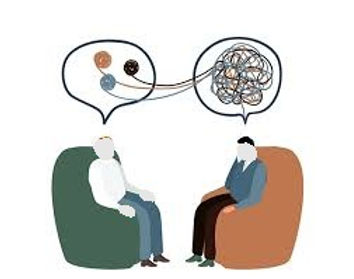Self-Compassion in Avodas Hashem
- Yanky Sigal

- Feb 23
- 2 min read
Updated: Jun 15
Self-compassion is the practice of treating yourself with the same kindness, patience, and understanding that you would offer a close friend. Instead of harsh self-judgment, self-compassion acknowledges struggles and failures while encouraging growth.
Self-compassion isn’t about complacency or ignoring mistakes. Instead, it’s about recognizing our struggles as part of the process of growth and allowing Hashem’s infinite love to guide us forward.
Many people assume that being hard on themselves is the only way to grow in Avodas Hashem. If they fail, they berate themselves, thinking that guilt and self-criticism will push them to do better. However, the Torah teaches that true teshuvah and self-improvement come from hope, not self-punishment.
The Navi Yeshayahu tells us:
וְעַד־זִקְנָה֙ אֲנִ֣י ה֔וּא וְעַד־שֵׂיבָ֖ה אֲנִ֣י אֶסְבֹּ֑ל אֲנִ֚י עָשִׂ֙יתִי֙ וַֽאֲנִ֣י אֶשָּׂ֔א וַֽאֲנִ֥י אֶסְבֹּ֖ל וַֽאֲמַלֵּֽט
"Even to your old age, I am with you; even when you turn gray, I will carry you. I have made you, and I will bear you; I will sustain you and deliver you." (Yeshayahu 46:4)
Hashem does not give up on us. No matter where we are in life, He carries us. If Hashem treats us with such compassion, shouldn’t we also treat ourselves that way?
The Rambam (Hilchos Teshuvah 7:4) teaches that no matter how far a person has strayed, teshuvah is always possible:
וְאַל יְדַמֶּה אָדָם בַּעַל תְּשׁוּבָה שֶׁהוּא מְרֻחָק מִמַּעֲלַת הַצַּדִּיקִים מִפְּנֵי הָעֲוֹנוֹת וְהַחַטָּאוֹת שֶׁעָשָׂה - אֵין הַדָּבָר כֵּן אֶלָּא אָהוּב וְנֶחְמָד הוּא לִפְנֵי הַבּוֹרֵא כְּאִלּוּ לֹא חָטָא מֵעוֹלָם.
"A person should not think that a ba’al teshuvah is distanced from the level of tzaddikim because of their past sins - this is not the case. Rather, he is beloved before Hashem as if he had never sinned."
The Yetzer Hara tries to convince people that their failures define them, that they are beyond repair. But this is the greatest lie.
Dovid HaMelech writes in Tehillim:
קָר֣וֹב יְ֖הֹוָה לְנִשְׁבְּרֵי־לֵ֑ב וְאֶת־דַּכְּאֵי־ר֥וּחַ יוֹשִֽׁיעַ
"Hashem is close to the brokenhearted, and He saves those who are crushed in spirit." (Tehillim 34:19)
A person who feels brokenhearted over their struggles is not distanced from Hashem - on the contrary, Hashem is closest to them.
There’s a difference between healthy self-reflection and destructive self-judgment. When people dwell too much on their failures, they end up feeling hopeless and stuck rather than inspired to change.
Chazal teach that Hashem does not expect perfection - Hashem expects effort.
לְפוּם צַעֲרָא אַגְרָא (Pirkei Avot 5:23)
Excessive regret is the Yetzer Hara’s way of keeping a person stuck. Avodas Hashem is a lifelong journey. Just as we are commanded to love and encourage others, we must also love and encourage ourselves. Recognizing our struggles doesn’t mean excusing failure - it means understanding that growth takes time.
With self-compassion, we can serve Hashem with joy, resilience, and hope.
We’re not expected to be perfect—we’re invited to keep going.



